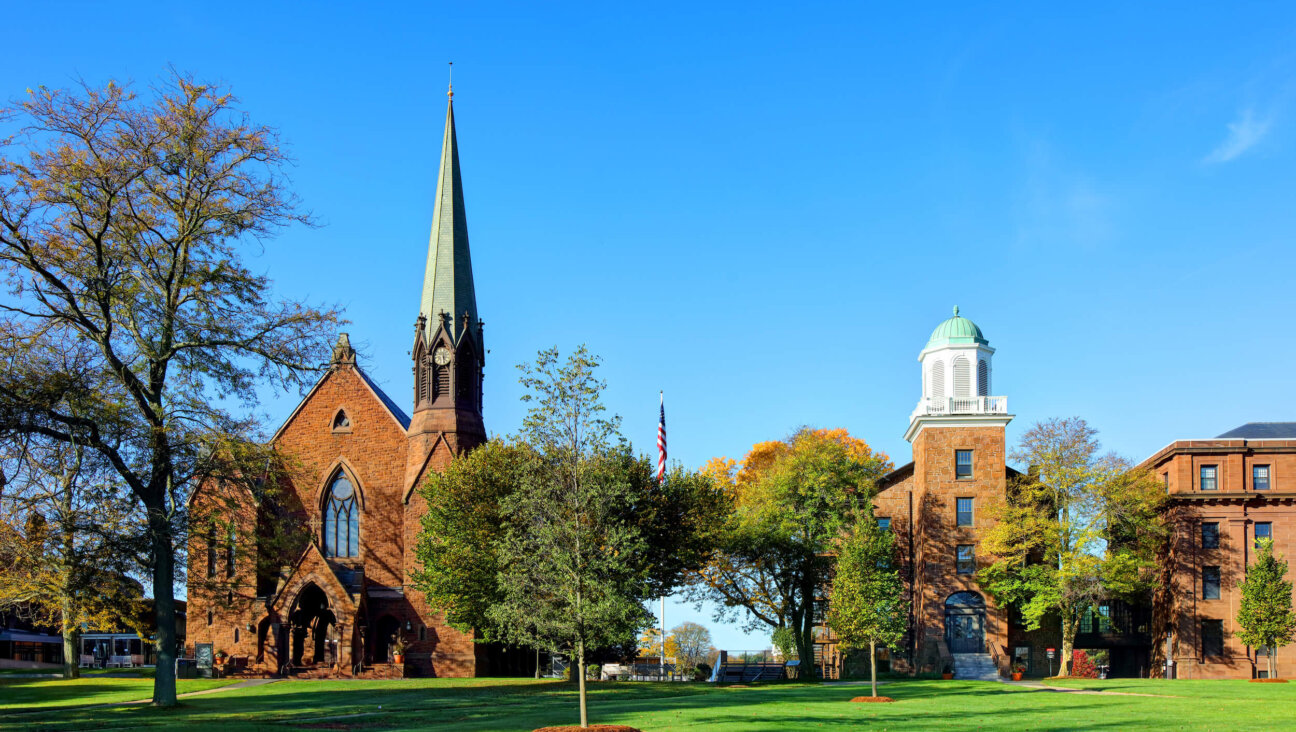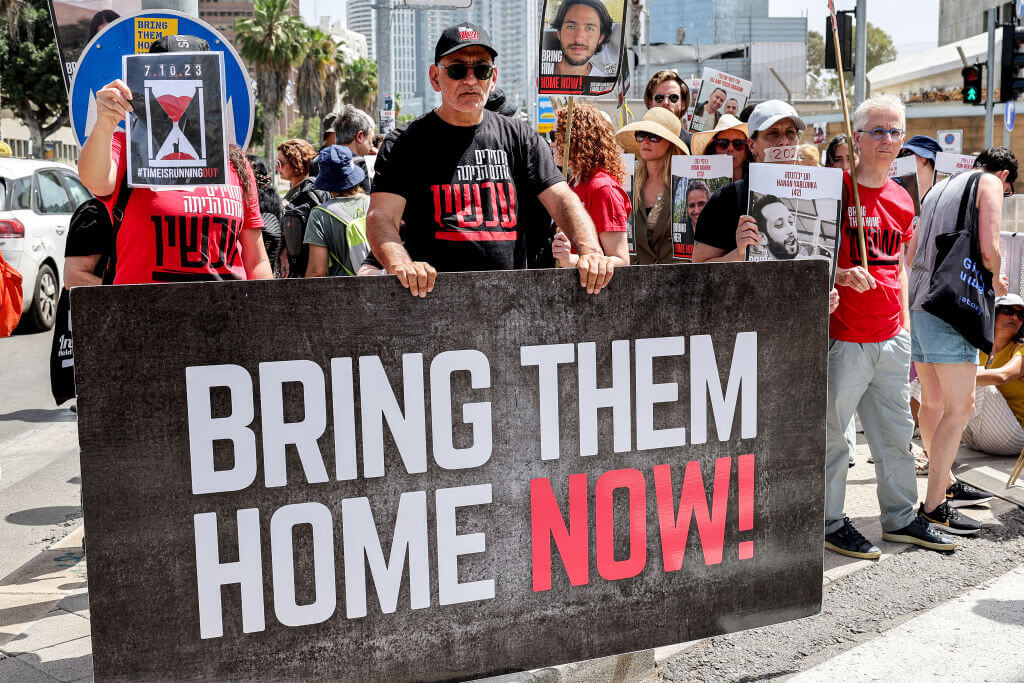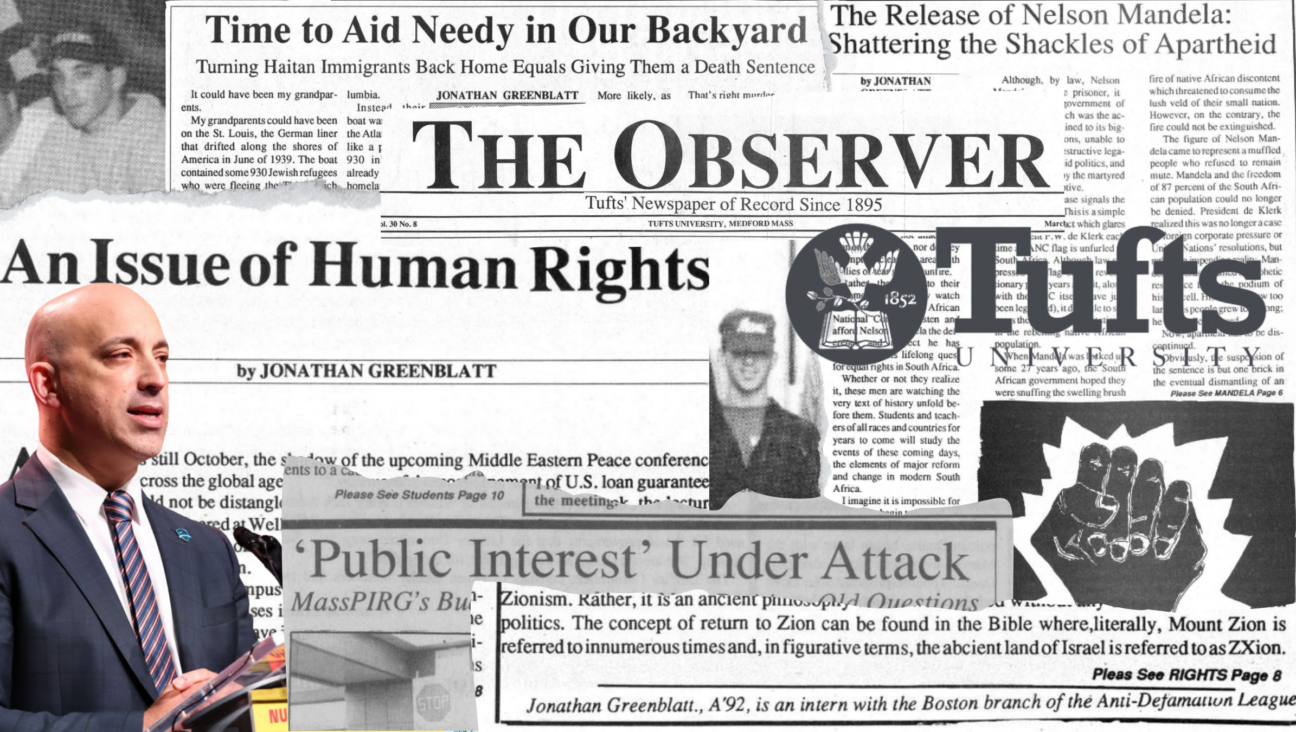Real Troopers: Boy Scouts Find Judaism In The Wild

Image by defense.gov
“Be as bold as a leopard, fleet as an eagle, swift as a deer, and strong as a lion to do the will of your Father in Heaven.” Rabbi Judah ben Tema’s 2nd century call for unflagging spiritual devotion in the service of God, recorded in Pirkei Avot (“Ethics of the Fathers”), fired my imagination when I first encountered his words. I was, at the time, a 14-year-old Eagle Scout in Troop 116, sponsored by the First Church of Christ Congregational in Northampton, Massachusetts.
“Be fleet as an eagle” was an apt and inspiring introduction to the world of Rabbinic literature. In the 20 years that I have served on the National Jewish Committee on Scouting, and now as the organization’s National Chaplain, I have cited Judah ben Tema at countless Eagle Scout Courts of Honor — the ceremony through which a young man is inducted into Scouting’s highest rank. “Be fleet as an eagle to do the will of your Father in Heaven” invariably resonates with my young Eagle Scouts, as well.
This spring, a number of Eagle Scouts will live out Judah ben Tema’s creed, as they receive rabbinic ordination. These young men, embarking on careers of religious leadership and service to the American Jewish Community, come from many religious and institutional backgrounds. They are united, however, in their devotion to the Boy Scouts of America and its impact on their spiritual lives and career paths. They are also unanimous in their conviction that the Jewish community would benefit immeasurably from expansive, principled involvement in the Scouting movement.
Their many personal experiences provide the most compelling evidence of this assertion.
Todd Zinn became an Eagle Scout in 2002 with Troop 36, and years later upon ordination, Rabbi Zinn deemed Scouting “the best, most significant leadership experience I ever had.” Todd’s classmate, Daniel Alter, became an Eagle Scout in 2001, sponsored by St. Stephen’s Episcopal Church in Beaumont, Texas. Daniel recalls that experience as “one of the first times I had to consciously consider my Jewish practice.” Daniel would later serve as a chaplain’s aide at the 1998 World Scout Jamboree in Chile. Daniel’s mentor, Rabbi Hyman — who served the Jewish Committee on Scouting as National Chaplain for over 30 years — commented upon Rabbi Alter’s ordination, “While it is the ceremony through which we welcome the next generation of energetic and creative Jewish religious leaders, it is, for me personally, a moment of validation and inspiration.”
Michael Cohen, who will be ordained as a Rabbi, credits Scouting for his choice of military service as a chaplain and teaching him the leadership, outdoor skills and self-sufficiency which “helped a great deal when I entered the Army to make it a smooth transition.” Scouting also strengthened his religious life and spiritual development, as he stated, “Scouting pushed me to be a seeker, to ask the questions, and push for answers.” He remembers how those in Scouting truly accepted his Jewishness and drew out his personal religious expression. “Scouting was the first place I felt I could be Jewish.”
<

Rabbi Michael Cohen, US Army Chaplain, Captain
Michael describes not only his road to Eagle Scout, but the ceremony at which he was elevated to that rank as particularly formative. His Eagle Scout Court of Honor was conducted at his father’s deathbed, in what would be among the very last minutes of his life.
Michael observes that his father’s parting counsel about choosing a career that makes a real and lasting difference also contributed dramatically to his decision to become a rabbi. Scouting founder Lord Robert Baden-Powell offered much the same insight in his final message to Boy Scouts: “Try and leave this world a little better than you found it, and when your turn comes to die you can die happy in the feeling that at any rate you have not wasted your time… and God help you do it.”
David Cavill is soon to be ordained as a Rabbi by the Academy for Jewish Religion (AJR) in Yonkers, New York. An Eagle Scout as well, Davill remarked, “The Scout Oath states that a scout must do his duty to God and his country. I think I became religious to be a better Boy Scout.” David traces his spiritual development to the time his Roman Catholic scoutmaster, knowing he was seeking spiritual fulfillment, introduced him to an active member of the Malverne Jewish Center on Long Island. Reflecting on his later work as a chaplain at Boy Scout summer camps, Cavill declared, “Despite the years of theological and religious studies, Boy Scout camp is about the only place where I’ve had a truly religious experience.”
In a chapter entitled “A Scout Is…,” published in Found Tribe: Jewish Coming Out Stories, David, though expressing his sadness surrounding B.S.A’s restrictive policy in place at the time regarding homosexual boy scouts, writes, “It seems that someone in Scouting always knew that I’m gay. No one ever really seemed to care… Scouting taught me to embrace my individuality, including and especially my sexuality.” The B.S.A.’s formerly restrictive policy strained its relationship with some progressive Jewish communities and movements. David’s view of Scouting even then — and with still greater enthusiasm under the current, inclusive policy — was far more appreciative and supportive: “My spirituality has seen more growth and development in the woods of a Boy Scout camp than anywhere else.”
Like his rabbinic colleagues, Rabbi Justus Baird, an HUC alumnus, acknowledges the impact of Scouting on his career path. “Those were the years where I discovered how deeply I love to teach others and facilitate learning,” he says. “The skills I learned as an outdoor educator at Scout Camp strongly shape how I design leadership education experiences as the Dean of Auburn Seminary.” The theological school Rabbi Baird leads as dean is one of the oldest seminaries in America, and focuses on training faith leaders to promote social justice causes, and also conducts studies on the needs of theological schools. Rabbi Baird observes, “BSA’s commitment to attending to the spiritual life of Scouts with a light hand, that is, without concrete expectations for specific beliefs or practices, was critical to my own faith development.”
My own rabbinate continues to be shaped by my Scouting ties. Writing weekly sermons, editorials, and academic articles is a process buttressed by early experience as a 12-year-old Troop Scribe. My chaplaincy has brought me the blessing of fruitful interfaith discussion with a wide variety of religious leaders: Roman Catholic, Methodist, Presbyterian, Mormon, Muslim, Baptist, Episcopal and a variety of other denominations. Naturally, Scouting also enables me to serve a Jewish constituency remarkably diverse in its approaches, beliefs, and patterns of religious expression. The love for American history, civics, and citizenship I learned as a Scout animates much of the special programming in my own congregation, Temple Emanuel of North Jersey, as well. Our popular Presidents Day service, featuring the chanting of the Gettysburg Address in Hebrew, draws a broad and bipartisan array of elected officials — and other worshippers — to our Sanctuary each year. More fundamentally, I continue today to establish my most cherished, fulfilling, and lasting friendships with fellow Scouts, just as I did in my youth.

Rabbi Todd Zinn at the Philmont Scout Ranch Jewish Chapel
Scouting’s contributions to the Jewish Community are limited neither to rabbis nor to Eagle Scouts. When I sought a Torah Scroll for use at a National Scout Jamboree, I gingerly broached the subject with my congregational president and ritual chairman, explaining the need. I quickly discovered that Temple Emanuel’s chief executive had attended the 1960 Jamboree in Colorado Springs (the largest such gathering in B.S.A. history), and that our chairman fondly remembered his activities at the 1957 Jamboree at Valley Forge. I was delighted that the B.S.A. had shaped the religious experience and commitments of my community’s lay leadership as well, just as it has for countless other Jewish communities and congregations.
It is clear to me (as it will be, I submit, to any fair observer) that the Boy Scouts of America continues to provide effective and sensitive leaders for the American Jewish Community, across its broad religious spectrum. As the Boy Scouts of America’s National Jewish Chaplain, I will continue to invoke Rabbi Judah ben Tema’s motivational wisdom when I proudly welcome fledgling Eagle Scouts to their new rank and status: “Be fleet as an Eagle to do the will of your Father in Heaven.”
In the spirit of that same rabbinic sage, I also pray in earnest that the American Jewish Community will be “as bold as a leopard” in reciprocating the benefits we have long reaped from Scouting, with long overdue, robust, and full-throated support for the Boy Scouts of America.
This is most directly achieved by sponsoring (“chartering”) Scouting units, with the resultant opportunity to shape their culture and program accordingly. Anything less would be unworthy of a religious tradition that derives its very name from the value of “gratitude” (Judaism, from Judah/Todah, meaning “to give thanks” — see Genesis 29:35).
I pray that the American Jewish Community will — either out of sincere gratitude or vested self-interest — be “as swift as a deer” to acknowledge its debt to the Boy Scouts of America as the youth movement which has – as an expression of its core principles – most effectively taught young Jews an appreciative reverence for American citizenship, while teaching young American citizens of all faiths an informed and reverent appreciation for Judaism.
Finally, I pray that the American Jewish Community — and, in particular, Jewish parents — will be “as strong as lions” in urging their children to join the Boy Scouts of America, where they, too, will make lifelong friends of strong character, develop a commitment to public service, hone leadership skills, encounter prospective career paths, learn environmental ethics and the value of sustainability, embrace an informed love of country, and practice religious and cultural pluralism — all while grappling seriously with their own religious tradition and personal spirituality.
Rabbi Joseph Prouser is the National Chaplain at the National Jewish Committee on Scouting.

I hope you appreciated this article. Before you go, I’d like to ask you to please support the Forward’s award-winning journalism this Passover.
In this age of misinformation, our work is needed like never before. We report on the news that matters most to American Jews, driven by truth, not ideology.
At a time when newsrooms are closing or cutting back, the Forward has removed its paywall. That means for the first time in our 126-year history, Forward journalism is free to everyone, everywhere. With an ongoing war, rising antisemitism, and a flood of disinformation that may affect the upcoming election, we believe that free and open access to Jewish journalism is imperative.
Readers like you make it all possible. Right now, we’re in the middle of our Passover Pledge Drive and we still need 300 people to step up and make a gift to sustain our trustworthy, independent journalism.
Make a gift of any size and become a Forward member today. You’ll support our mission to tell the American Jewish story fully and fairly.
— Rachel Fishman Feddersen, Publisher and CEO
Join our mission to tell the Jewish story fully and fairly.
Only 300 more gifts needed by April 30






















